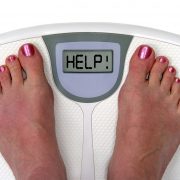If Diets Worked – Everyone Would Be Thin!
This is a favorite saying of mine that a dear friend and longtime training buddy Dr. Robert Weatherwax has been saying for decades. Think about this statistic, in 2010 there were an estimated 75 million American individuals on some form of a diet and the total expenditure for these diets was $60.9 billion (with a B!). By 2014, the weight loss market grew to an estimated $586.3 billion dollars globally.
Now think about this, how can an industry continue to grow each year, when the industry itself is about losing weight – this number should be decreasing each year, just like the individuals are on these popular diets and medical systems? Here is the truth of the matter – the way to lose weight long term is so simple, the diet companies and medical system centers don’t want you to “learn” how to keep weight off long term because then you will not fail and keep coming back.
Tell me if this doesn’t sound familiar: You get to a point that you don’t like your weight, size and low energy levels. For the sake of this example, let’s say that your weight is 200 pounds. You tell yourself (or you have been convinced by extensive marketing/advertising) that you cannot accomplish your desired weight, size and energy levels without their special diet or medical system, so you join the “X” Company program/system and you are on your way to long term weight loss.
You follow the program religiously and over the next four to six weeks, you lose the “weight” (usually between 8 and 15 pounds); however, you are constantly hungry (because you must follow strict food consumption), you have headaches and you are not sleeping too well. Your pre-diet conditions (night sweats, interrupted sleep, loss of libido, and craving of simple sugars) continue to persist, but you are content that the scale is telling you that you are losing weight. By the eighth to tenth week, you are finished eating like a bird, feeling lethargic and work up the courage to leave your safety net of your diet or medical system to solider this alone. Note: you have reduced your “weight” from 200 pounds to 185 pounds; you are proud of the weight loss and tell yourself that you are determined to get back to your high school weight of 170 pounds.
So you transition from the diet makers boxed food items, canned drinks, bars and appetite suppressing shots to the real world’s meal and snack items. And sure enough within two weeks, you have put back on five to ten pounds of the weight that you lost. The first thing that comes to your mind is, “I can’t lose and keep the weight off without my special diet or medical system”. The diet company and/or medical systems have you in what is called the Endless Loop of Despair: they have you convinced that you are not capable of losing the weight and keeping it off unless you are under the instruction of their products. THIS IS NONSENSE, YOU ARE CAPABLE OF LOSING WEIGHT AND KEEPING IT OFF, YOU JUST NEED TO BE TAUGHT THE TRUTH ABOUT WEIGHT LOSS.
SIX TRUTHS ABOUT WEIGHT LOSS
- Dehydrating the body is NOT weight loss
- Eating up your muscles is NOT weight loss
- Eating very little will cause you to GAIN weight
- Exercising too hard, too long, too often will CAUSE you to GAIN weight
- You should NEVER be hungry
- You should NEVER be tired
SIMPLE FACTS BEHIND EACH TRUTH ABOUT WEIGHT LOSS (THAT THE WEIGHT LOSS INDUSTRY DOES NOT WANT YOU TO KNOW!)
Simple Fact #1-Dehydrating the body is NOT weight loss
Here is THE simple “trick” to the high protein, low carbohydrate diet: when you eat carbohydrates (breads, pasta, fruits, vegetables, essentially anything that is not protein) your body converts the carbohydrates into glycogen and stores this sugar in your muscles and liver for energy. In order for your body to store one gram of glycogen (stored sugar), your body stores 2.5 grams of water. Think about this strategy: no carbohydrates, no retained water – you lose 10 pounds in a week! There it is short and sweet – no carbohydrates, not water retention you are lighter. The problem: you have not lost any body fat, just water weight!
Simple Fact #2-Eating up your muscles is NOT weight loss
After you begin to cut calories, your body will go through a process of sourcing energy: stored sugar from the liver and muscles, then protein from muscles and then body fat. On a low calorie diet, protein intake is normally limited –when your body doesn’t receive adequate amounts (or quality) of protein, it will begin to cannibalize (or “eat”) your muscles for energy. It is easy to tell when this is happening, your urine is dark yellow and you can smell the uric acid & ammonia which is a by-product of breaking down the muscle for energy. The problem: you have not lost any body fat, just lost muscle mass!
Simple Fact #3-Eating very little will cause you to GAIN weight
If your body is not consuming enough calories, the body will switch into the “preservation or survival mode”. The body sends messages (headache, belly grumbling, moody, etc.) to your brain that it needs more calories than it is receiving and when you ignore these messages, your metabolism slows down (usually within 1 to 2 weeks) to match your caloric intake. After you have slowed your metabolism down, anything that you consume over and above your “low calorie” intake is converted to fat -here is the reason why. A calorie from fat yields 9 calories of energy (carbohydrates and protein yield 4 calories of energy); when your body is in preservation mode it is looking for the greatest amount of energy from your body – this comes from either fat (9 calories) or stored sugar or protein (4 calories). When you decide that you are tired of constantly being hungry, experiencing low energy and having chronic headaches, you leave your low calorie diet or medical system and you go back to eating real world food and snacks. The problem is you go from (as an example) consuming 750 calories to 1500 calories and these “extra” 750 calories are immediately converted to fat because your body is stuck in preservation mode. This is why you jump from your end of diet/medical system weight of 185 to 205 pounds – now you are heavier than you were before you started your diet/medical system program! Welcome to the trials and tribulations of the yo-you diet and you begin to believe that you can’t “maintain” your desired weight without a diet program or medical system. The problem: you have not lost any body fat; you have actually triggered your body to convert everything you consumed to stored fat (because it thinks you are starving it)!
Simple Fact #4-Exercising too hard, too long, too often will CAUSE you to GAIN weight
Exercise can serve your body in two ways: as a stress reliever or as a creator of stress; the only element that creates the distinction is the level of stress that the exercise has on your body. When you exercise too hard (relevant to your personal max heart rate number) and/or for too long in duration, your body perceives this as stress and adapts to this exercise as it does any other stress – it dumps a hormone known as cortisol into your blood stream to handle the stress. Unfortunately, cortisol acts as a fat magnet in your body causing you to gain weight even when you are exercising consistently. What compounds the stress of exercise is when the body is lacking adequate quality and quantity of sleep & calories, lacking adequate stored sugar levels and is dehydrated (are you beginning to see a trend here?). The problem: you have not lost any body fat, instead you have exercised yourself into gaining more weight!
Simple Fact #5-You should NEVER be hungry
When you exercise, you should be finishing each session feeling strong and full of energy – actually more than when you started. If you are struggling to finish a workout, you are not taking in enough calories and/or enough carbohydrates (dense breads, fruits and vegetables). Ironically, you burn fat more efficiently when your blood sugars are stable during exercise. If you feel sleepy or sluggish within 20-30 minutes of eating, you may have sensitivity to certain foods types or ingredients. The problem: not consuming enough calories negatively effects the quality of your exercise efforts and limits your ability to burn fat.
Bonus Fact-You should NEVER crave simple sugars
One of the big four indicators of adrenal fatigue are the craving of simple sugars (Note: the other three indicators are night sweats, interrupted sleep and loss of libido all of which will be addressed in another report). This behavior (yes it is a behavior), occurs as a result of low essential fatty acids being consumed in your daily eating. Essential fatty acids (EFA) are sourced from cold water fish, avocadoes and extra virgin olive oil – when your body is low on EFA’s, a negative by-product is the overwhelming cravings for simple sugars. The beauty to consuming cold water fish, avocadoes and extra virgin olive oil is that your body will either use the calories as fuel or pass it as waste – not depositing of body fat! The problem: experiencing adrenal fatigue will cause you to crave simple sugars to the point that it will feel like an addiction.


